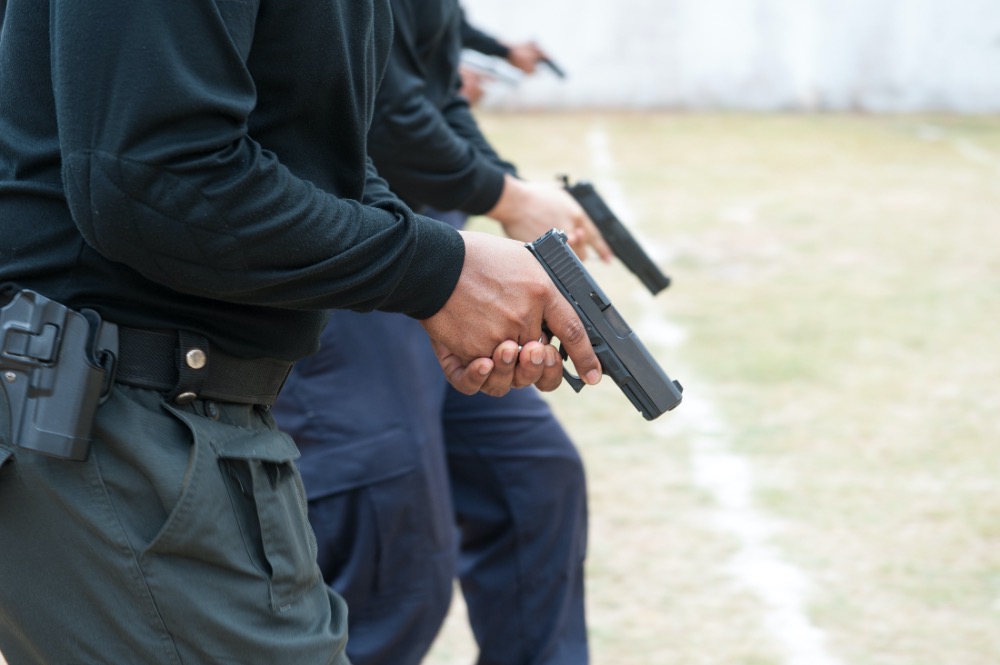Do your clients know what your guards do? Security guard companies can spend a lot of effort advertising the business, but they should always remember that clients are primarily interested in the guards themselves, and what specific skills they offer – far beyond simply armed and unarmed.
This is good news: It means that your guards aren’t just a company asset, they’re a marketing asset – and you should use them as much as possible. That means creating content that clearly identifies the different type of guard services you provide, and what training your guards have. This gives you a valuable opportunity to impress leads that are looking up your services – but what sort of guard training should you highlight, and what does it mean for your clients? Here are several ideas based on the type of guard training we see successful security companies offering, and why.
Plainclothes Training
Plainclothes training refers to guards that can blend into a crowd, wearing normal clothes for the time and place instead of a uniform. This requires a level of subterfuge – as well as arrangements for the right wardrobe. Plainclothes guards are typically in high demand for professional events, certain parties, important meetings, and similar situations. Offering services like these shows that your company is experienced with the most sensitive situations and can be trusted for discretion and efficiency.
Plainclothes guarding can also sometimes refer to undercover work, but this can come with different expectations, so make sure you provide the details of exactly what sort of plainclothes work you provide.
Unarmed Combat Training
If you provide unarmed guard services, then clients are likely to have questions about just what unarmed options the guards use. This is a great opportunity to take about their training and tools: Do your guards use batons? Do they have pepper spray? Are they armed with tasers?
Go into some specifics so that people will know how they or their property will be protected even if the guards aren’t armed. Talk about all defensive equipment that your guards are equipped with, and when it is intended to be used. This is also a great place to talk about any tactical equipment that your guards use, if any. Flashlights, binoculars, and handcuffs can be an important part of an unarmed guard’s kit. Explaining that your guards use this equipment shows just how prepared your employees are, even when they don’t have firearms.
Patrol Training
Patrol training may seem obvious, especially in contrast to “checkpoint Charlie” alternatives, but there are still important reasons to highlight this training. Guards that patrol are generally expected to be alert, to watch for trouble, and to cover broad areas that static guards may not be able to handle. This is also a good place to mention guard vehicles, GPS capabilities, and any patrol-related technology that your guards use to be more efficient.
If your guards specialize in more stationary services, make sure you emphasize any training related to customer service, concierge capabilities, and similar skills. Static guards are more and more frequently called up on to offer these services and in some ways represent the company they are contracted out to, which means communication and personal skills are quite important. Make sure that clients know your guards are capable of talking to customers, being polite, offering helpful advice, and generally representing the company or client that you are helping. Just showing that you understand this can be very helpful!
Escort Training
Escort training is the ability to escort a person or property from one place to another. It requires excellent coordination between guards, the latest technology, and work with security vehicles. Experience is particularly important for this type of training, so make sure you cite any experience that your guards have in this area.
If your guards have any experience with guarding valuable personal property, make sure to mention it. What types of personal property do your guards have experience in protecting? Can they handle fragile items or items in transport? Do they have experience guarding valuable items at events or showcases? What about company prototypes or valuable supplies that need to be shipped? All this information should be available to anyone who is looking.
If your guards have training escorting people, make sure you mention the types of escort training your business has – what type of VIPs have you protected? How were they traveling? Bodyguards tend to stay with specific targets for an event or a more extended period to make sure they are safe. If clients are looking for this particular type of protection, nothing else will do: Cite bodyguard training and what bodyguard services look like with your company.
First Aid/Evacuation Training
This is especially important training that clients of all kinds will like to see. How do your guards handle an emergency? If someone gets hurt, do they have the first aid training to help without making things worse? What if there’s a fire or attack – are the guards training to evacuate a group to safety? Many clients will have questions like these, and this is a great way to address them properly for those doing research on your company. Make sure that you talk about:
- The first aid materials and equipment that your guards will have access to
- The procedures your guards are trained for if someone is wounded
- What first aid training your guards have for treating wounds or health issues while waiting for emergency services
- How your guards can help people evacuate from fires, assaults, and other problems
- Any specific examples to back this information up
Drone Training
While today’s security guards use many types of technology, one of the unique technologies appearing in the security industry is drone surveillance. This usually means using drones to quickly survey particularly large building, properties and estates where traditional patrolling may not be as effective. Drones take proper training and licensing to use legally. If you offer drone services, make sure to explain them!
Because clients may not be sure what security drones are or what they do, you will need to explain how they can be useful – photos and video of drone maps and how they survey can be very helpful here. Mentioned the certifications that your drone experts have, and assure clients that they obey all federal, state and local requirements for flying drones. You may also what to talk about how your experts fly the drones, what happens when drones view a problem, and similar issues related to the process.
Keep in mind, these training ideas are just examples of how you can utilize the guard experience your own team offers. If you are interested in adding more training and expanding your services, it may be time to rethink your guard hiring strategies, or start entering guard training programs to equip your employees with specific, in-demand skills.






